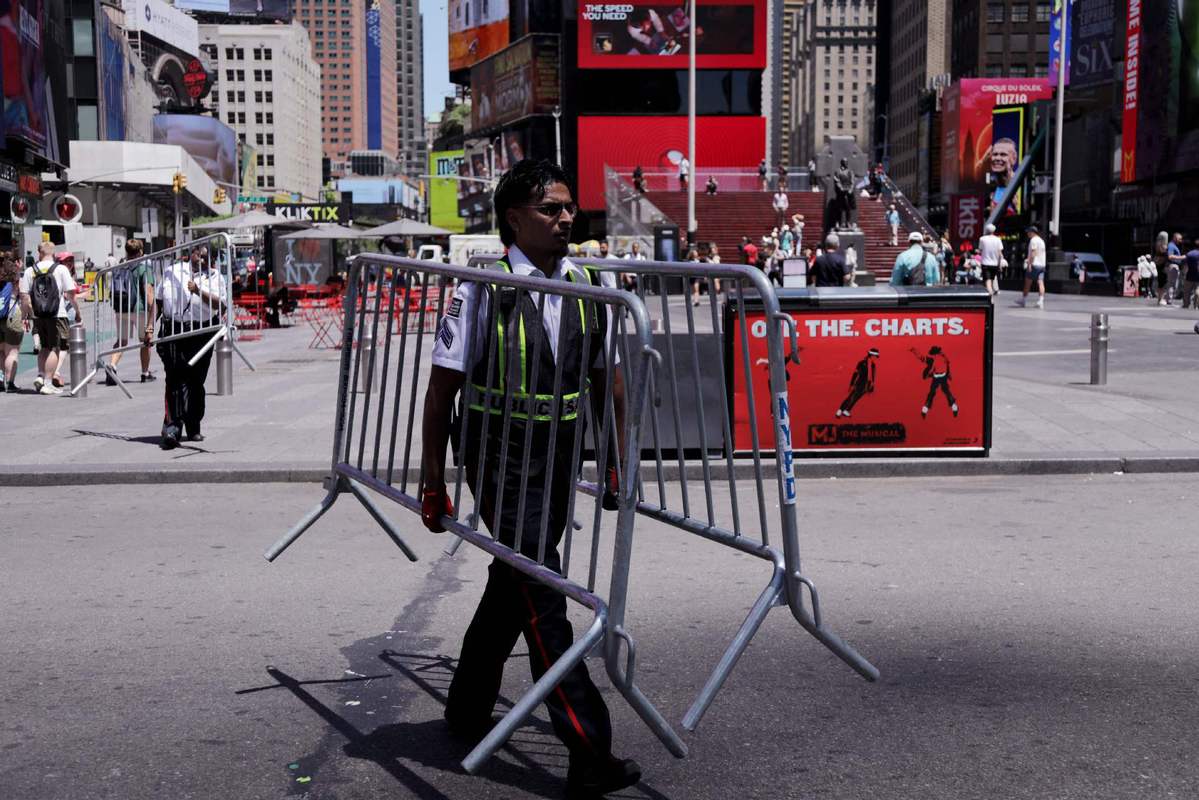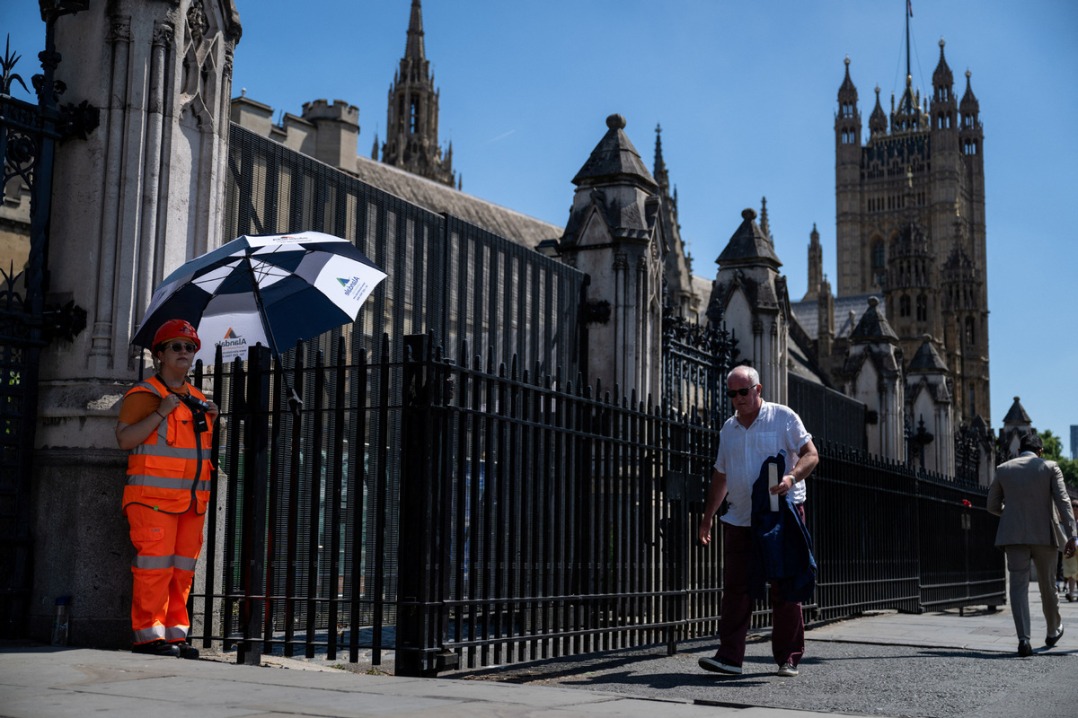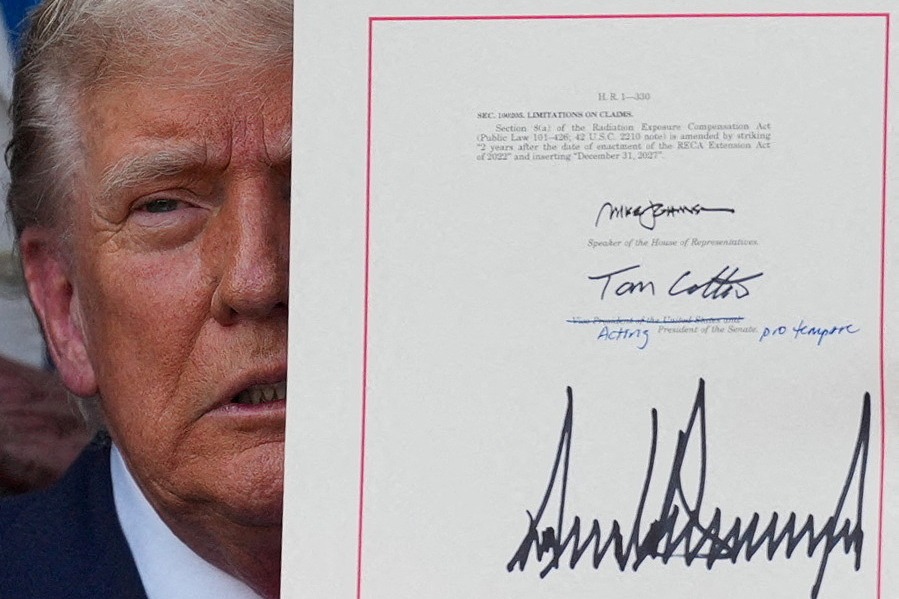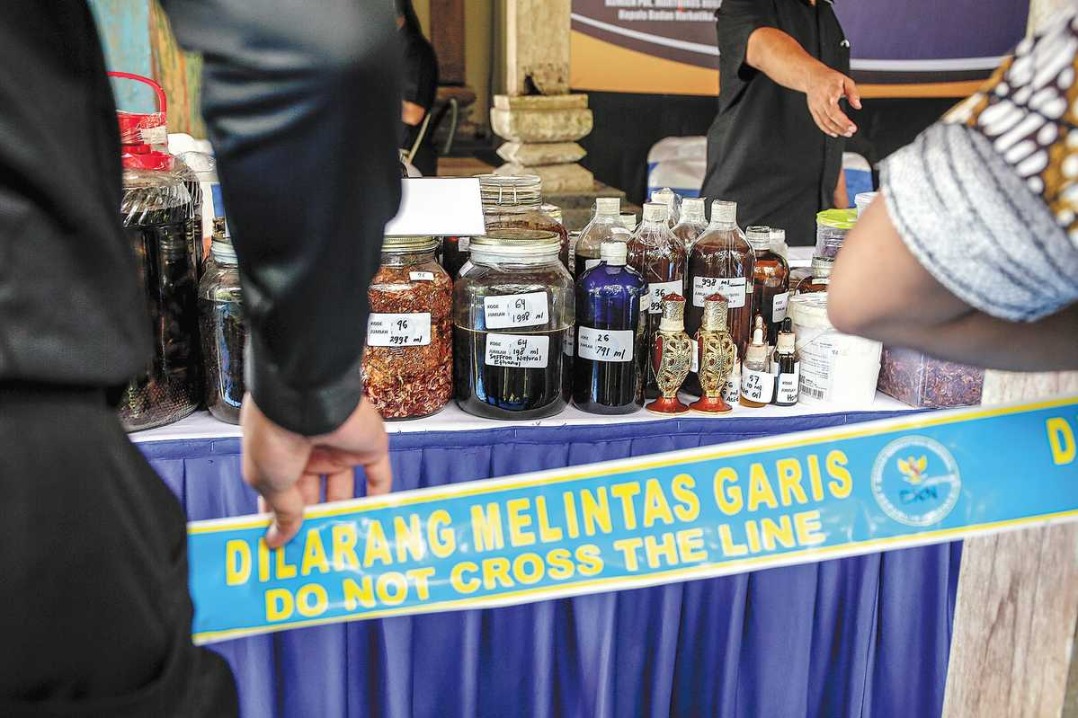Consumers continue to rein in spending over fears about tariffs


American shoppers tightened their belts and spent less in May over fears about tariffs raising prices, as figures show that consumer spending declined that month for the first time since January.
The findings in a report by the Commerce Department's Bureau of Economic Analysis released on June 27 showed that personal consumption expenditures declined by 0.3 percent adjusted for inflation in May after rising 0.2 percent in April.
"I've spent less on groceries and takeout in the last few months for sure," Abbi Smith, 27, from New York told China Daily while shopping at a Trader Joes in Brooklyn mid-week.
"I am worried about the tariffs making things more expensive, but I can't do much to stop all of that. It is making me more careful where my money goes," she added. "My rent and bills are high and I don't have a lot of spare cash so things are pretty tight."
Consumer spending is a vital indicator of the health of the economy, as it represents at least two-thirds of all economic activity. But the tariffs have sown uncertainty.
The overall amount spent on goods dropped 0.8 percent and there was a 1.8 percent decline in purchases of items such as motor vehicles, the data showed. Consumers also spent less on hotels and dining out.
Sal Guatieri, senior economist at BMO Capital Markets, wrote in a note that "apart from autos, households are also shelling out less for services, notably restaurant meals, with volumes flat in May after little rise in April. This could reflect some anxiety about the trade war."
Amid consumer worries, some headway has been made in the trade war after the United States and China signed a trade deal at the end of June cementing the agreement first brokered in Geneva, Switzerland in May.
However, economists have warned for over a year that tariffs could force households to spend more, especially if businesses raise their prices to offset the cost of the levies.
"The … taxes are economically significant … and regressive in the sense that they take a larger share of income from poorer households than richer households," said Mary Lovely, professor emeritus of economics at the Maxwell School of Citizenship and Public Affairs of Syracuse University and senior fellow of the Peterson Institute for International Economics in Washington, DC.
The National Retail Federation has found that many US businesses got ahead of the tariffs by buying inventory earlier than usual this year, which makes it harder to account for the true impact of tariffs on prices.
Yet, products that are made in China and sold on Amazon have gone up in price, an analysis by DataWeave suggests. It found that the cost of 1,400 products from China rose faster than overall inflation, and shows that the tariffs are hitting prices, Reuters reports.
Americans saw their personal income drop 0.4 percent in May — the largest decrease since September 2021 — while wages increased by 0.4 percent the same month, the data showed.
Consumers not only spent less on gas amid lower prices at the pump, but also on food, financial services, insurance and transportation.
Additionally, amid a downturn in consumer spending, the US dollar had its worst start to the year in nearly 50 years.
It came as geopolitics took center stage and uncertainty gained traction in the business community and stock market.
The dollar fell by over 10 percent in the past six months against other major currencies. It was its worst half-year performance since 1973. It comes as investors sold off the currency over concerns about economic policies emerging from The White House.
Overall Americans spent more in the 'services' category in May, rising by 0.1 percent, the Commerce Department found, which caused an uptick in spending on housing, utilities and healthcare.
Soft consumer spending and inflation are unlikely to spur the Federal Reserve to resume cutting interest rates in July, Reuters reports.
Federal Reserve Chair Jerome Powell expects inflation to pick up in June, July and August as the tariffs filter through to consumer prices.
He said on Tuesday that the US Central Bank would have raised rates if it was not for the levies. "In effect, we went on hold when we saw the size of the tariffs and essentially all inflation forecasts for the United States went up materially as a consequence of the tariffs," Powell said at a forum at the European Central Bank in Sintra, Portugal.
The forum discussed how Trump's on again, off again tariff policy has rattled global markets. The US stock market has, however, bounced back and regained losses in recent days as the S&P 500, Dow Jones and Nasdaq Composite saw record highs in the past few sessions.
belindarobinson@chinadailyusa.com

































